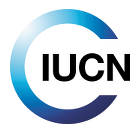We are sure that 2014 will be a big year for MWSRP. We are making big plans to release some of the exciting findings we have made on the South Ari aggregation. Soon, seven years of hard work and research will be published.
Today we want to share with you that MWSRP has decided to publish in Open Access Journals. This means “unrestricted access via Internet to our peer-reviewed scholarly research”. We think this is the least you can expect from an organisation, like us, that benefits so much from science done by citizens like you.
Widely Accessible
We firmly believe that the science we do must be widely available for the government, conservation and scientific authorities in the Maldives; but also importantly for the people whose livelihoods and traditions are strongly connected to the whale shark and its fate, for the guests from all around the world that appreciate and contemplate these whale sharks, and for the present and past donors and volunteers that are part of the MWSRP family and enable us to do our research.
We also believe that the science we do must be of the highest quality. That means that whatever we say about the whale sharks in the Maldives is thoroughly reviewed by peers in the scientific community.
Old Traditions…
Lamentably, traditions in the scholarly literature world make these two beliefs come into conflict. That’s is why we at MWSRP have decided to get away from the traditional model of science publishing and embrace this relatively new model called Open Access.
The long-established way to publish scientific discoveries uses subscription-based journals. Basically, scientists submit their findings “for free” to an editorial house, the journal editors find peers that review the new discovery and suggest to publish it (or not) based on interest, novelty and scientific soundness. If the paper is published, it will be accessible only for those subscribed to that specific journal. What this usually means is that science advances only for those that are lucky enough to have access to institutional libraries able to pay hundreds of thousands of dollars a year on subscription fees. If you are out of this circle and still want to read the paper you would have to pay $20 to $70 to be able to do so.
…New Opportunities
We don’t share the values of this old-fashioned 18th century paradigm. We think that science advances best when it’s freely accessible to anyone out there with an Internet connection rather than when it’s restricted to a small group of scientists that can afford it. We think that our understanding of whale sharks will accelerate if people can reuse our work and build upon it. We think that peer review should be transparent and based solely on scientific soundness, and then readers will decide on its relevancy.
We are able to advance conservation thanks to people like you. By making our findings public and available to everyone we are thanking you for your support. So stay alert because next year there will be a lot of “sciencey thank-yous”.
PS: If you feel a beet nerdy and want to learn more about Open Access, there is a pretty neat video from PhD comics that explains it all.

